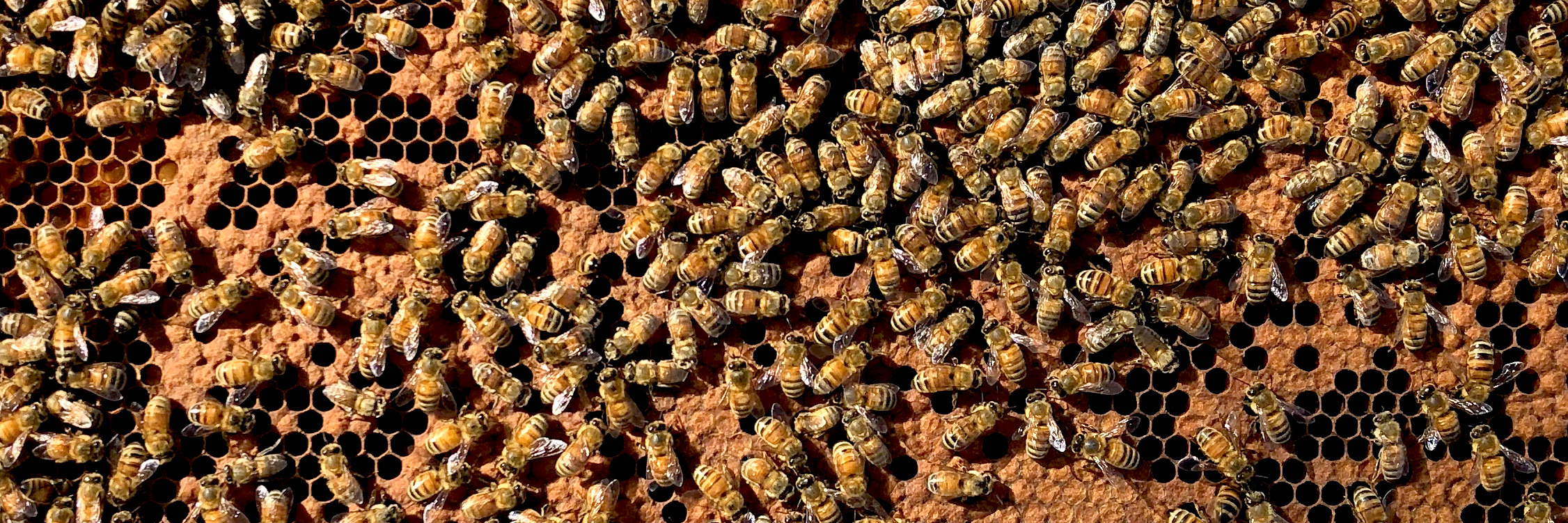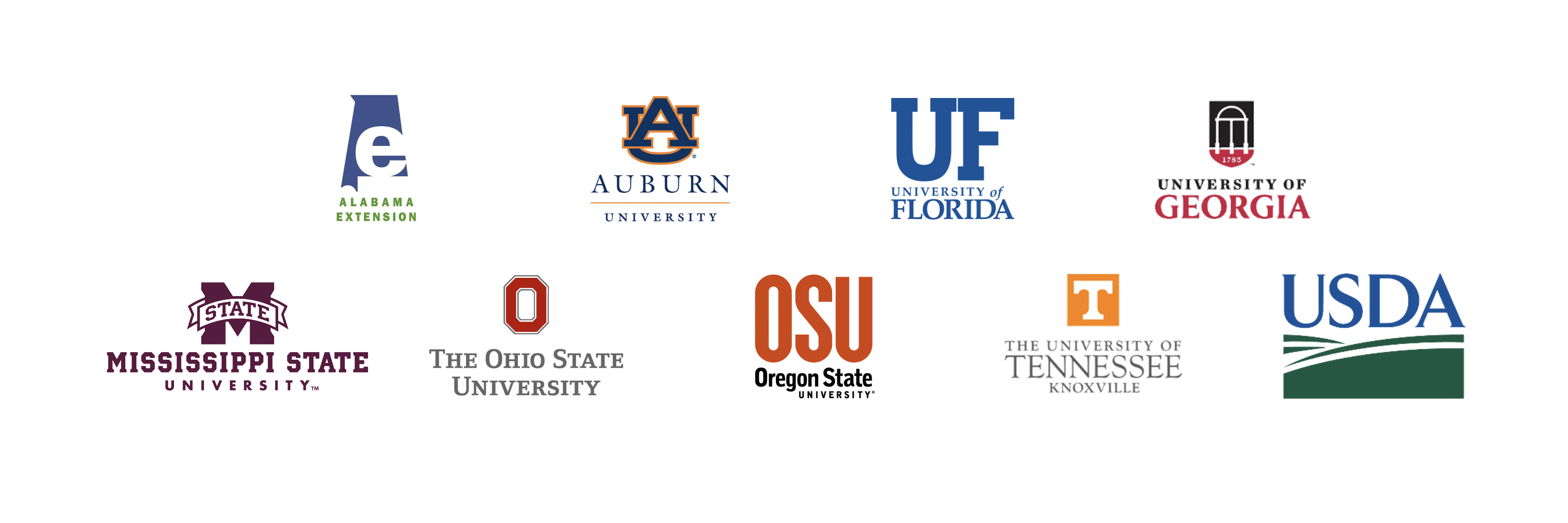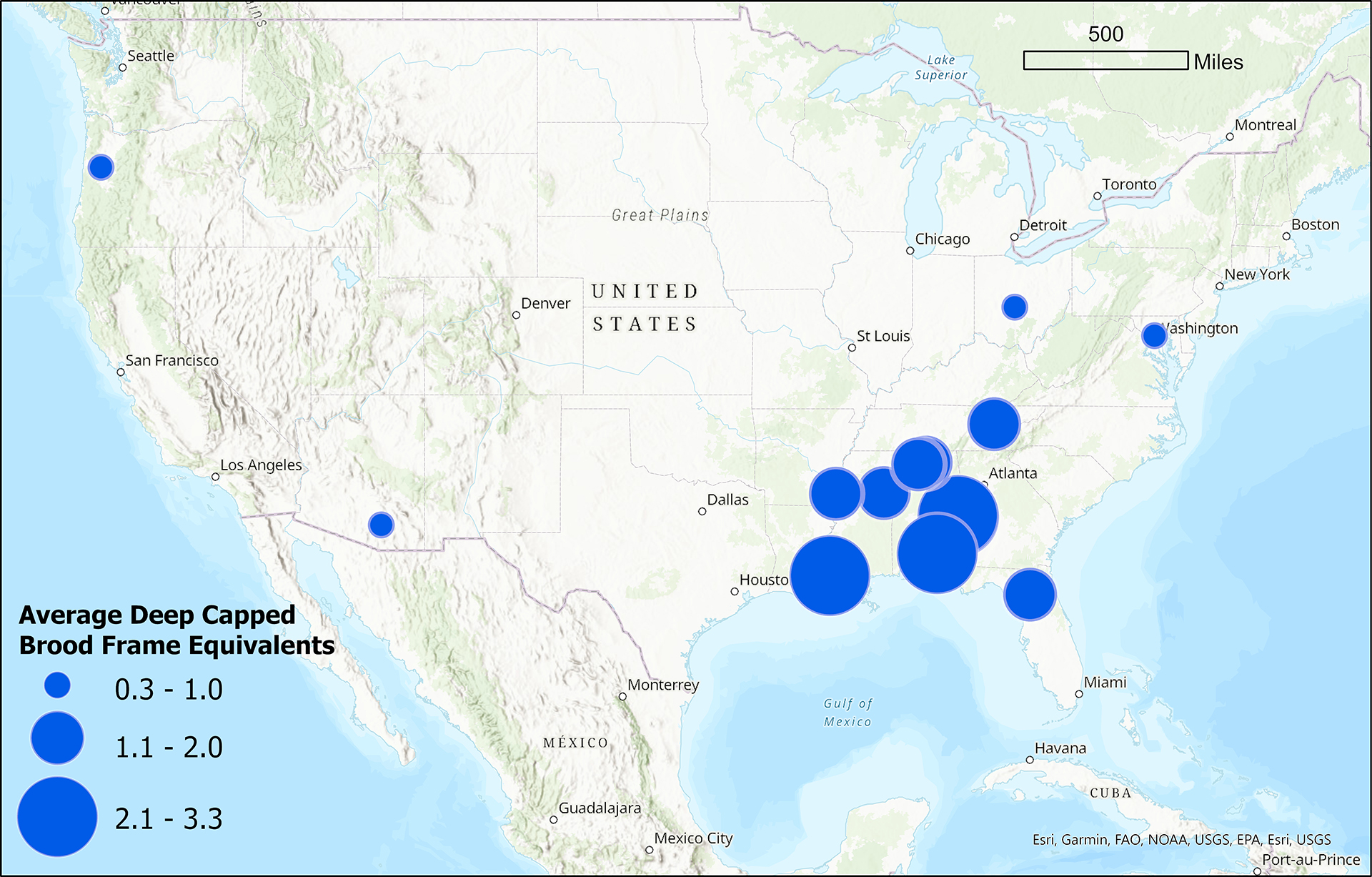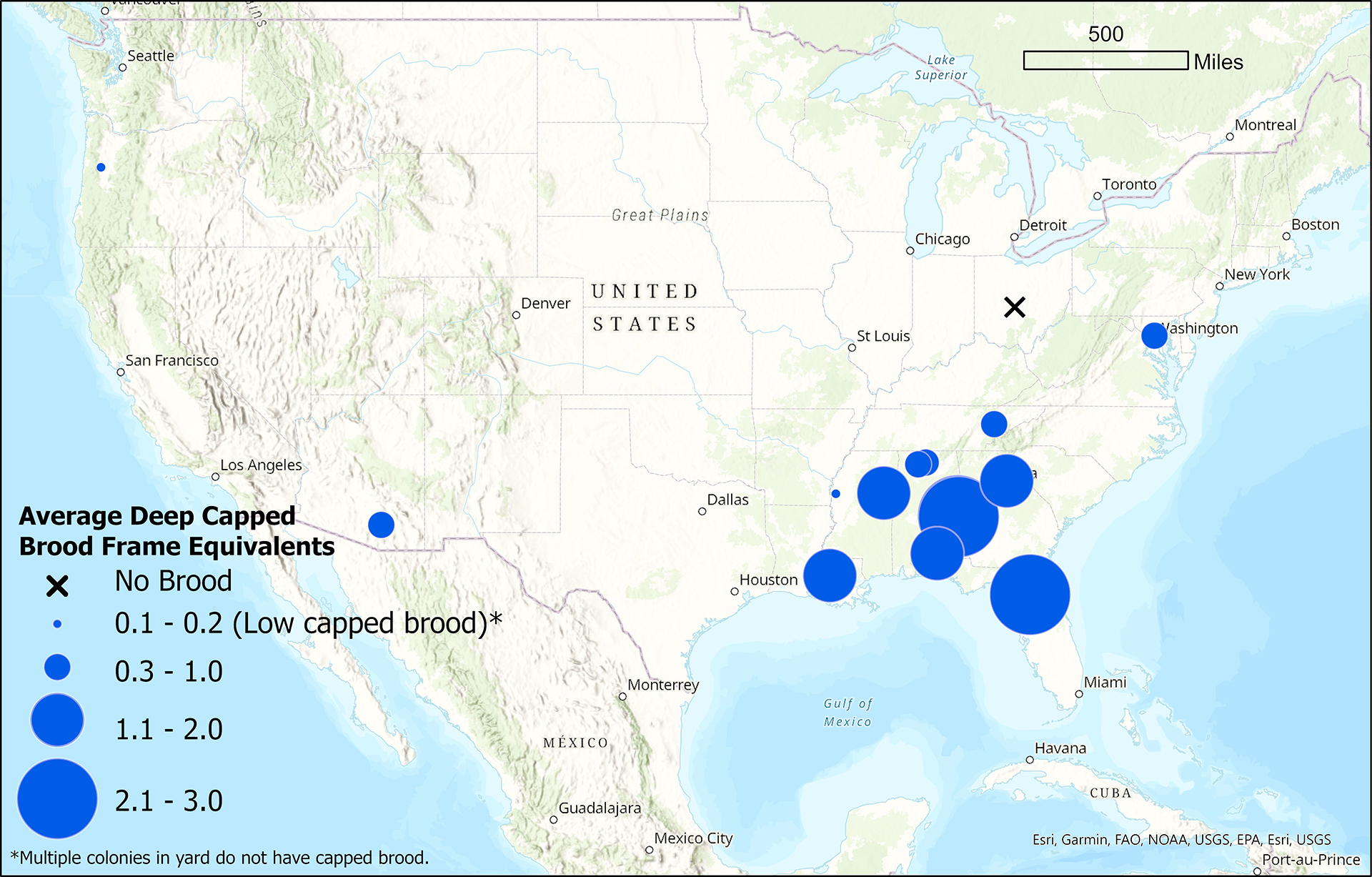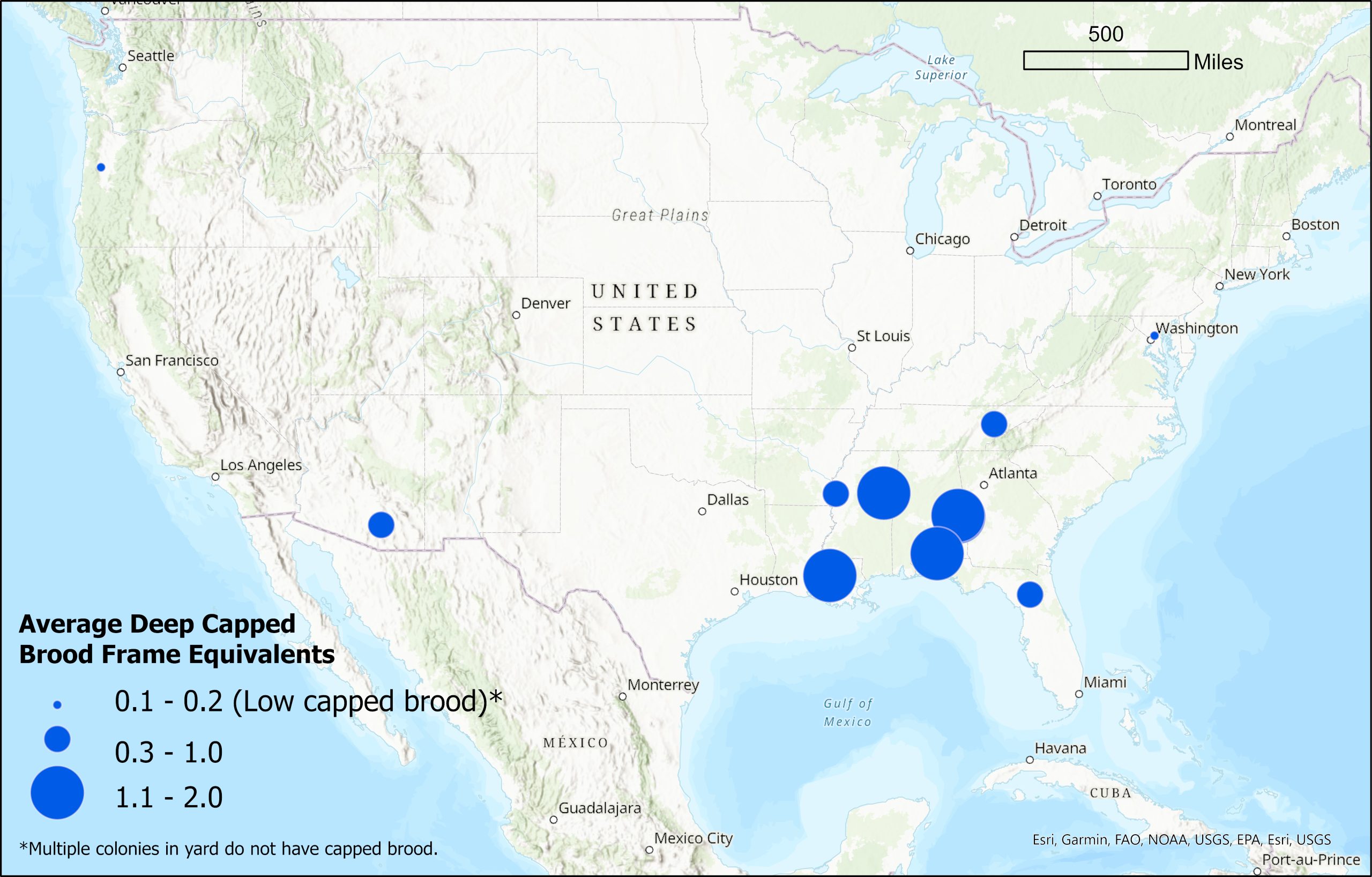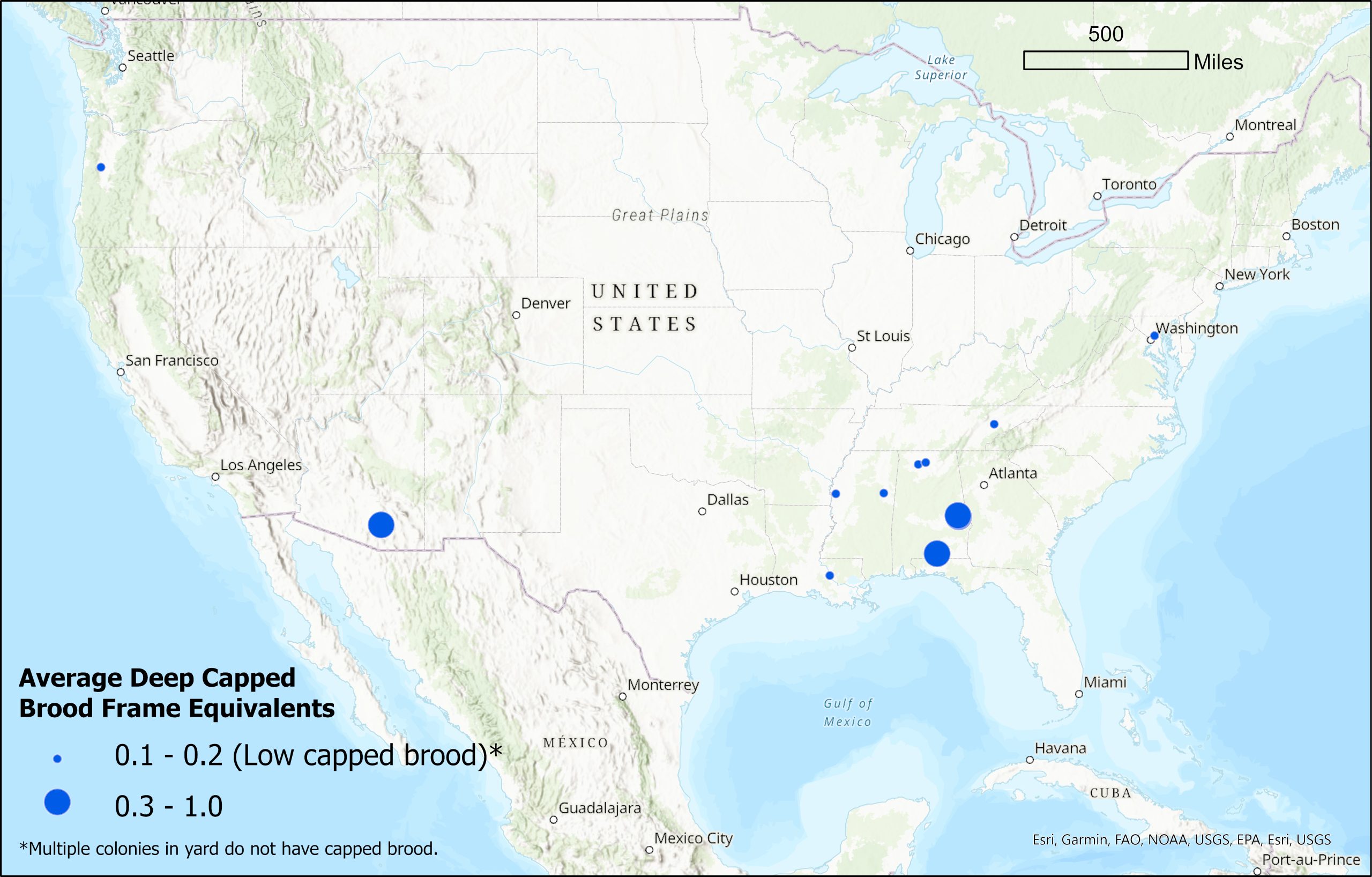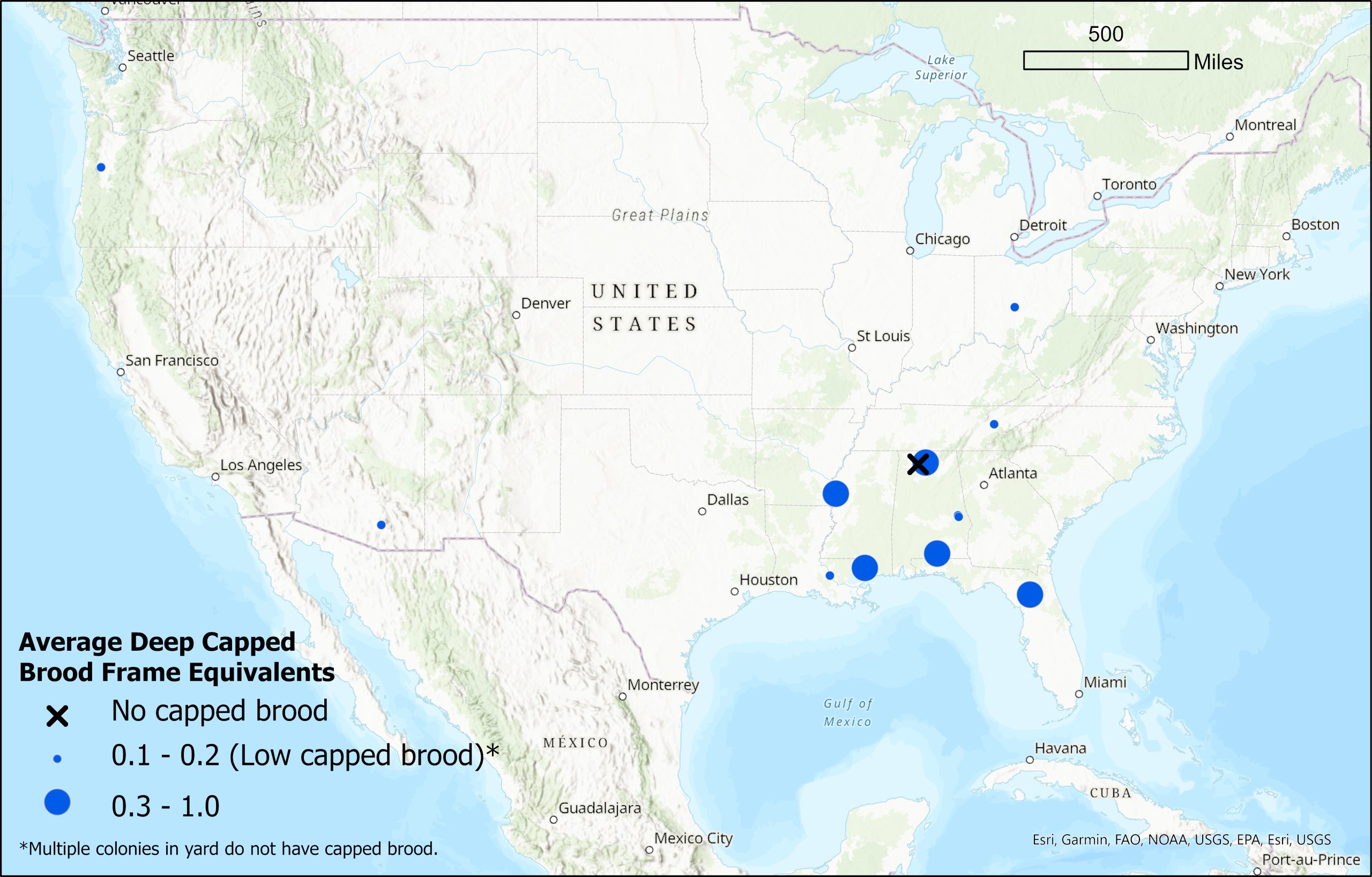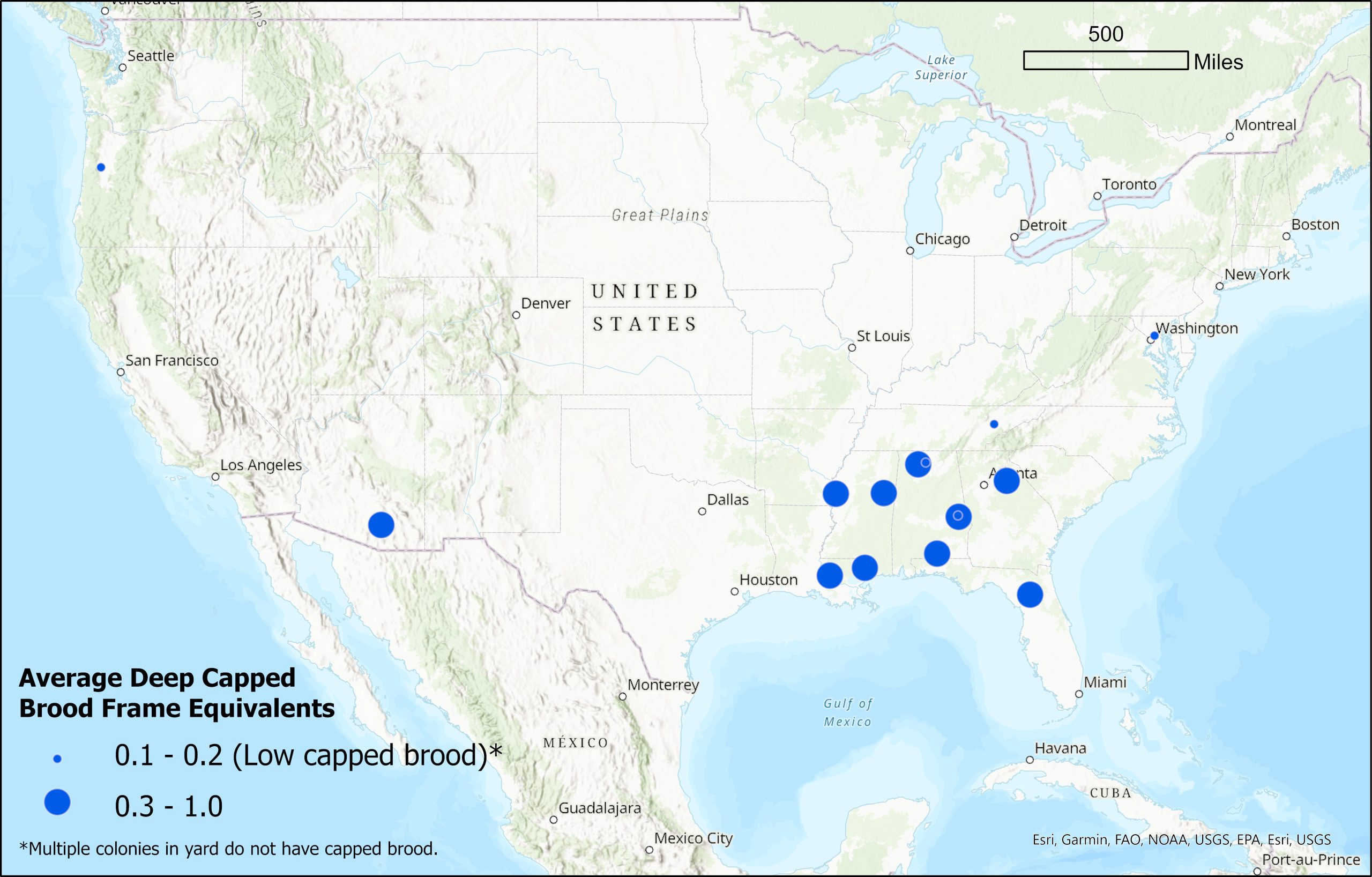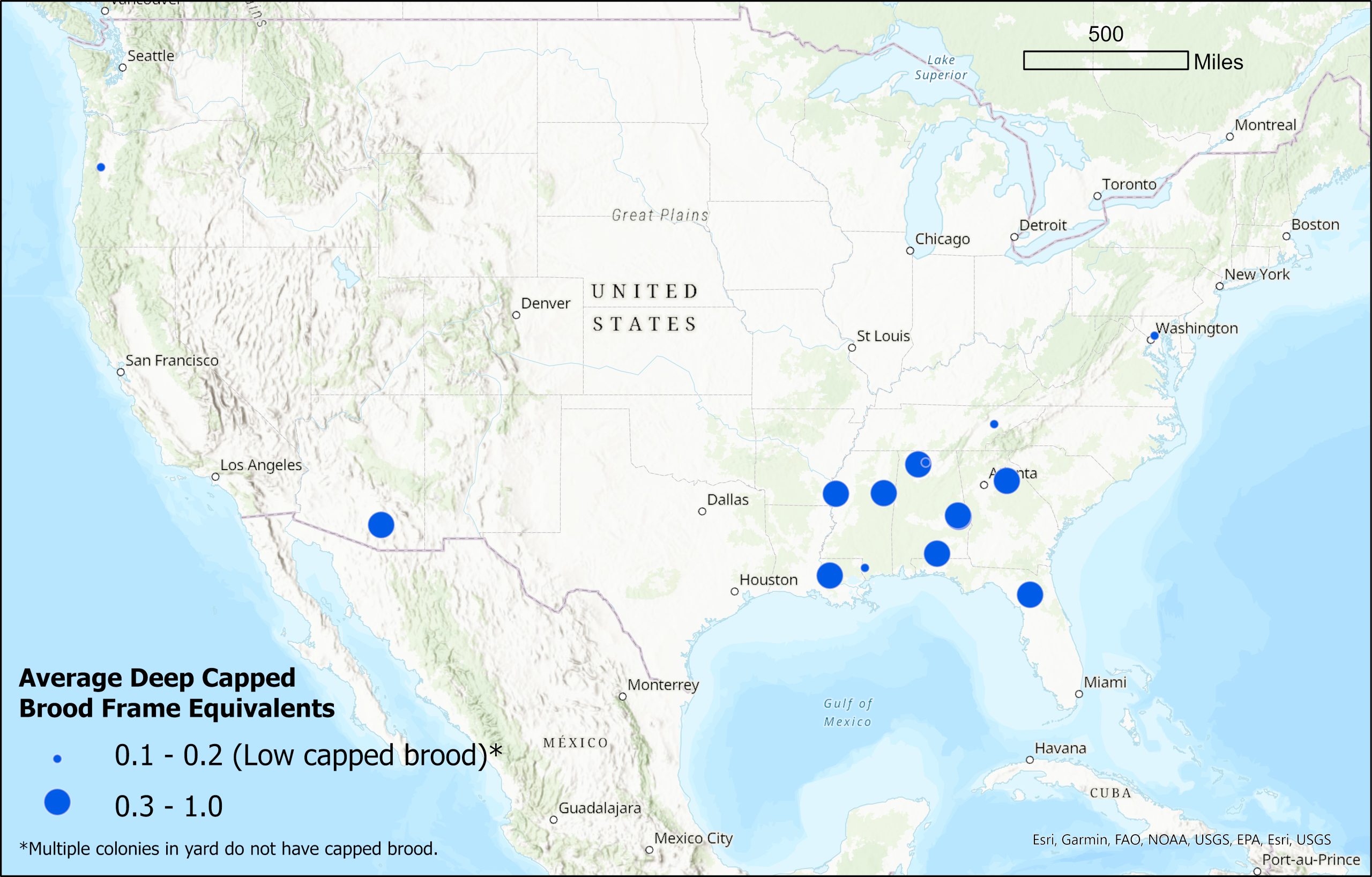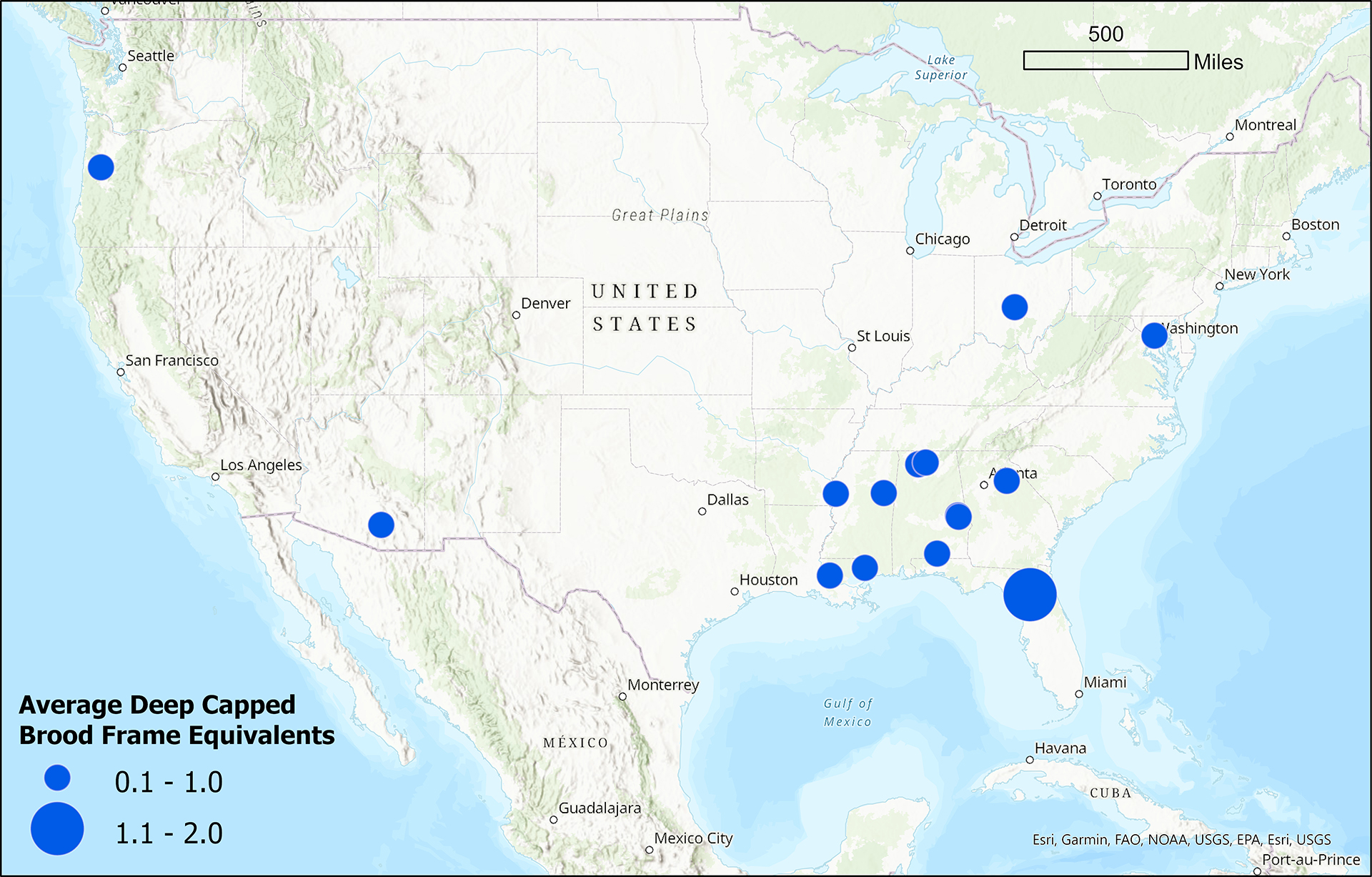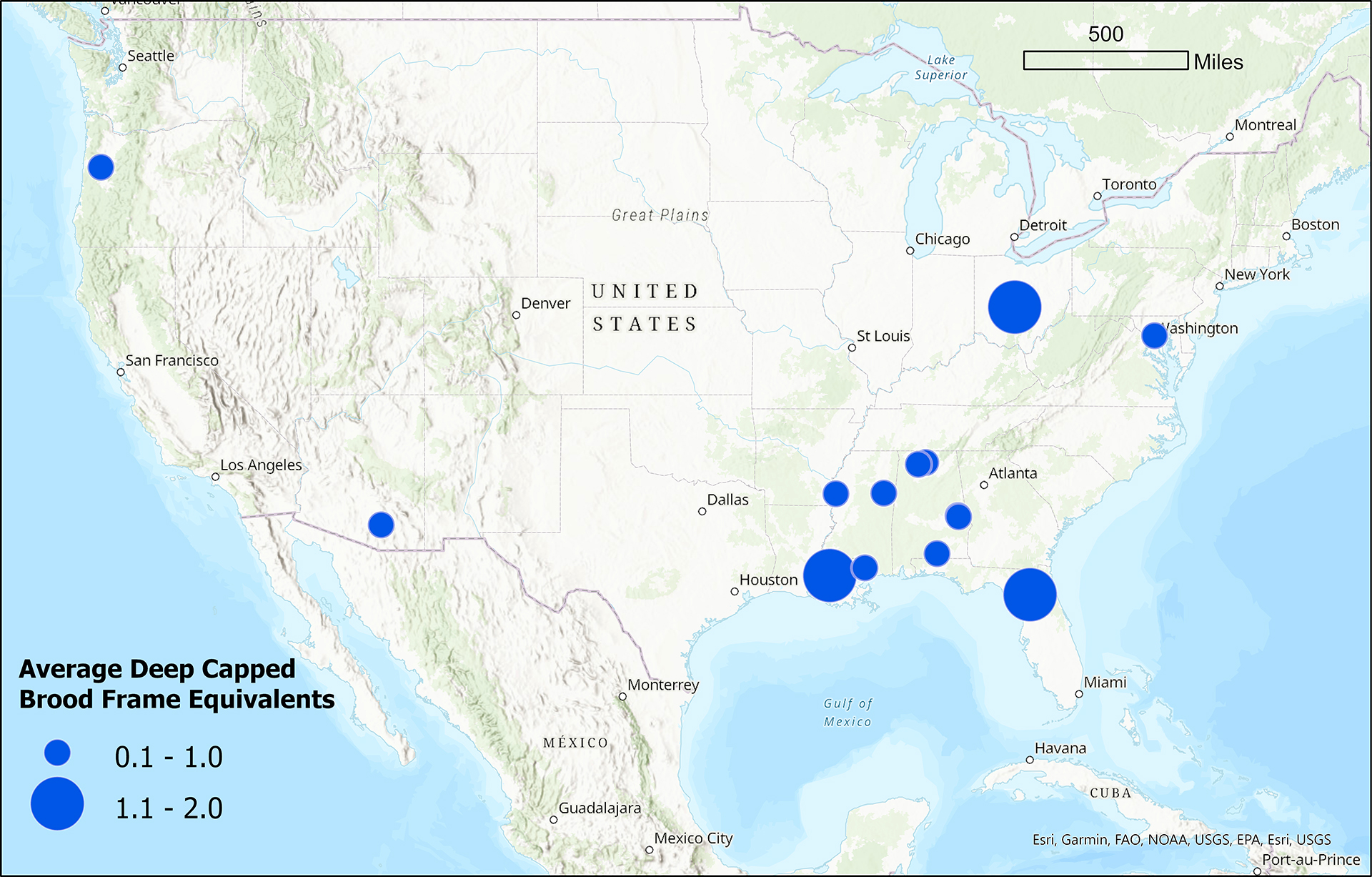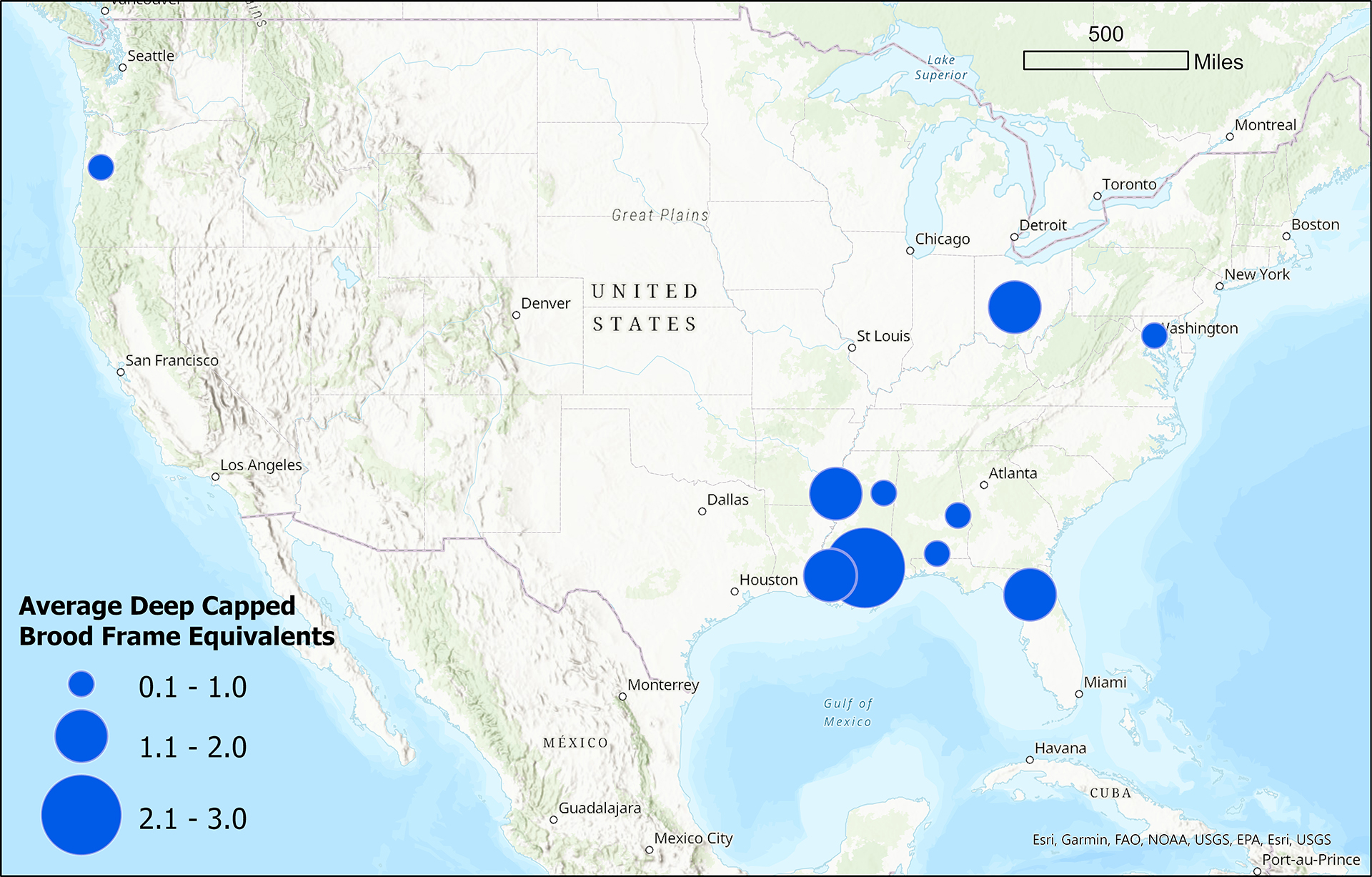2022/23 Winter Capped Honey Bee Brood Monitoring Program
The status of capped brood in honey bee colonies during winter is critical information beekeepers must consider when choosing an appropriate control product for the mite Varroa destructor. As colonies emerge from winter, insight into colony brood rearing also helps beekeepers plan for early spring management, such as feeding and swarm control.
Although colonies located in many parts of the United States experience predictable extended periods without brood, this may not be the case for those in coastal and southern regions with mild winters.
To help beekeepers make appropriate management decisions during winter and early spring, 7 land-grant universities, 1 statewide cooperative extension system, and 5 USDA ARS labs (Baton Rouge, Beltsville, Poplarville, Stoneville, Tucson) are jointly monitoring the amount of capped brood in their colonies throughout the country from mid-October 2022 to the end of February 2023.
This page was updated every 2 weeks so that the amount of capped brood in the monitored colonies can be communicated to the beekeeping community.
Biweekly Static Maps
Each blue point on a map below represents the average amount of capped brood among all monitored colonies at a particular location, as expressed as deep frame equivalents. One deep frame equivalent represents 100% coverage of capped brood on both sides of the frame.
For example, the blue point over Washington D.C. for the Week of October 17th shows that the average amount of capped brood among the 9 monitored colonies was between 0.1 and 1.0 deep frames. This was calculated by dividing the total amount of capped brood of all 9 colonies by 9.
Week of February 20th, 2023
Week of February 6th, 2023
Week of January 23rd, 2023
Week of January 9th, 2023
Week of December 26th, 2022
Week of December 12th, 2022
Week of November 28th, 2022
Week of November 14th, 2022
Week of October 31st, 2022
Week of October 17th, 2022
Resources for Beekeepers
- Honey Bee Health Coalition – Information on varroa management
- American Beekeeping Federation & American Honey Producers Association – Information on how to connect to your local or regional association
Collaborating Groups
- Alabama Extension Beekeeping Team
- Auburn University Bee Lab
- Auburn University GeoIDEA Lab
- University of Florida Honey Bee Research & Extension Lab
- University of Georgia Honey Bee Program
- Mississippi State University Amiri Pollinator Health & Apiculture Lab
- Mississippi State University Chakrabarti Pollinator Health & Apiculture Lab
- The Ohio State University Bee Lab
- Oregon State University Honey Bee Lab
- University of Tennessee Apiculture Lab
- USDA ARS Baton Rouge – Honey Bee Breeding, Genetics, and Physiology (Rinkevich)
- USDA ARS Beltsville – Bee Research (Cook)
- USDA ARS Poplarville – Southern Horticulture Research (Goblirsch)
- USDA ARS Stoneville – Pollinator Health in Southern Crop Ecosystems Research (Lau)
- USDA ARS Tucson – Carl Hayden Bee Research Center (Meikle)
- Beekeeper Patrick McCalman
Research
Teaching
Team
Publications
Honey & Sales
Donate to AU-Bees
Contact
Geoffrey Williams
Associate Professor
301 Funchess Hall
Auburn, AL 36849
334-844-5068
williams@auburn.edu
Rogan Tokach
Ph.D. Student
PAm-Costco USA Scholar
rtt0016@auburn.edu

